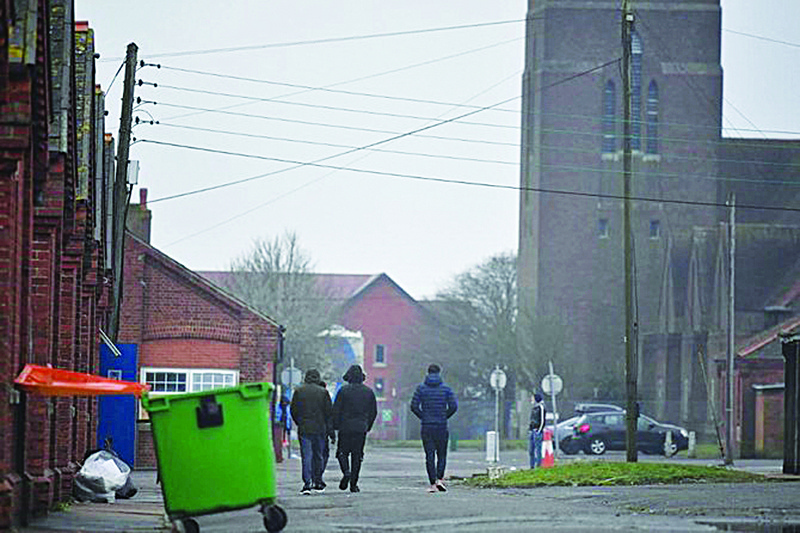 Former residents of Napier Barracks in Kent claimed that their conditions were "inhumane," and that some even attempted suicide. - AFP
Former residents of Napier Barracks in Kent claimed that their conditions were "inhumane," and that some even attempted suicide. - AFPLONDON: The British government acted unlawfully in its treatment of six asylum seekers housed at a former military camp that failed to meet minimum standards, a judge ruled yesterday. The interior ministry controversially began hosting hundreds of asylum seekers in Napier Barracks, in Kent in southeast England, last September, despite health officials warning it was unsuitable.
Conditions at the former army site were described by asylum seekers' lawyers as "squalid", and almost 200 people tested positive for coronavirus during an outbreak there earlier this year. Six men, all said to be survivors of torture and/or human trafficking, sued the government, claiming that using the camp breached their human rights and could amount to false imprisonment.
Following a two-day hearing in April, High Court judge Thomas Linden ruled in their favor, concluding that ministry claims that the site was adequate were "irrational". "I do not accept that the accommodation there ensured a standard of living which was adequate for the health of the claimants," he stated in his decision, citing COVID-19, fire safety and other issues.
Linden declined to rule that the barracks could never be used to house asylum seekers and limited his findings to the conditions the six men specifically faced. However, he noted: "If the barracks are to continue to be used, there clearly need to be substantial improvements in the conditions there."
A spokesman for Britain's interior ministry, the Home Office, said it would "carefully consider the ruling and our next steps", but that Napier will continue to operate. The site was used "at extremely short notice" as the pandemic hit Britain, "to ensure asylum seekers were not left destitute", he added. "It is disappointing that this judgment was reached on the basis of the site prior to the significant improvement works which have taken place in difficult circumstances."
The Home Office and the six men must now try to agree on damages. The court ruling comes as the number of asylum seekers and economic migrants trying to reach Britain by sailing across the Channel continues to increase. The number of people crossing the 21-mile (34-kilometre) stretch of water has almost doubled so far in 2021, with more than 3,100 reaching the English coast in the first five months of the year.
Meanwhile, Denmark's parliament yesterday adopted a law enabling it to open asylum reception centers outside Europe where applicants would live while their case is processed, with the host country also taking them in if granted asylum. Known for having one of Europe's harshest stances on immigration, the wealthy Scandinavian country aims to deter migrants from coming to Denmark at all.
Despite criticism from humanitarian organizations and some leftwing parties, the bill, proposed by Prime Minister Mette Frederiksen's Social Democrats, was adopted by 70 votes to 24.
Under the law, asylum seekers would have to submit an application in person at the Danish border and then be flown to an asylum center outside Europe while their application is being processed by the host country. If the application is approved and the person is granted refugee status, he or she would be given the right to live in the host country, but not in Denmark.
If it is rejected, the migrant would have to leave the host country. No country has agreed to collaborate with Denmark yet, but the government says it is in talks with five to 10 countries, without identifying them. Danish media have mentioned Egypt, Eritrea and Ethiopia as possibilities. Denmark is meanwhile known to be in talks with Rwanda. The two have signed a memorandum of understanding on asylum and migration cooperation, though the document doesn't specifically cover external asylum processing. - AFP











